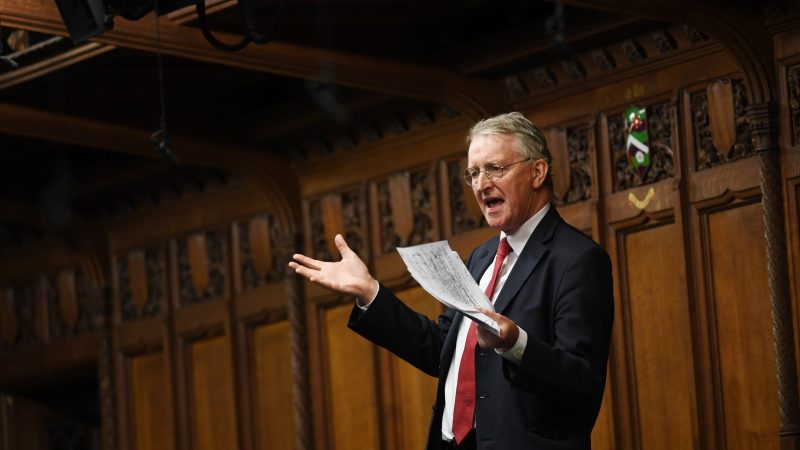
On January 1st this year, we saw the biggest change in our country’s trading relationships for decades when the transition period ended and the UK left the EU customs union and single market. Although many businesses had been trying to get ready for this moment, nothing quite prepared them for the reality – the paperwork, cost and bureaucracy that actually confronted them.
From fishermen being unable to sell their catch into Europe, to artists and performers facing real difficulties in touring on the continent, to the current row over exports of animal and food products from Great Britain to Northern Ireland, we have only begun to understand exactly what this change means. Trade flows with the EU fell sharply in January and there has been a growing chorus of concern as businesses struggle with the consequences.
It’s really important that we understand what is going on and come forward with practical proposals to help businesses and the jobs and family incomes they support. And that’s where the UK Trade and Business Commission comes in.
Supported by Best for Britain, we have brought together leading figures from the business community and MPs from all four nations and every major party of the UK, in a way that’s never really been done before. This unique partnership will help us to analyse in detail the impact on trade and services of this major change, and to provide much-needed, independent scrutiny of the EU-UK Trade and Co-operation Agreement, the Northern Ireland Protocol and other new trade deals, their impact on the UK economy and how they can be improved.
Our work will look forward, not back. Brexit has happened. We are faced with a new set of political and economic circumstances. And our task now is to ask what kind of new relationship we want to have with our biggest, nearest and most important friends and trading partners.
One of the features of the Trade and Co-operation Agreement is that it specifically envisages new agreements being reached under its umbrella between the United Kingdom and the European Union. This is the peg on which we can hang progress, provided there is the political will from both the British government and the EU. We have to be honest and recognise that it is going to take time for the very difficult relationship that Brexit has created to evolve into something better, but all of us who are concerned about the future of the country should be arguing for that moment to come as quickly as possible.
We therefore intend to make practical recommendations to government that will give British business and industry the best chance of bouncing back from the twin effects of Covid and Brexit. With the country facing the worst recession in 300 years, it’s never been more important for us to get our trade policy right.
In our first session this Thursday, we will be questioning economists about the likely overall impact of this change, and in our next evidence session later this month we will look at checks on food products, including between Northern Ireland and Great Britain. The current difficulties in Northern Ireland in part arise from strong feelings about the way in which the Northern Ireland Protocol is being applied. Everyone needs to lower the temperature so that the practical questions can be asked.
For example, do there really need to be export health certificates for every item in a lorry crossing the Irish Sea to stock up supermarkets in Belfast or Londonderry? We want to explore what could be done to fix this, and whether there is scope for a veterinary agreement between the EU and UK to reduce the need for these checks between Northern Ireland and Great Britain. This is about looking at the art of the practical and, by doing so, giving a voice to the businesses and communities most affected.
If you want to submit evidence to the commission, click here, and if you would like to watch our live evidence session on Thursday 15th April at 10.30am, please click here.




More from LabourList
‘The cost of living crisis is still Britain’s defining political challenge’
‘Nurses are finally getting the recognition they deserve’
Letters to the Editor – week ending 15th February 2026